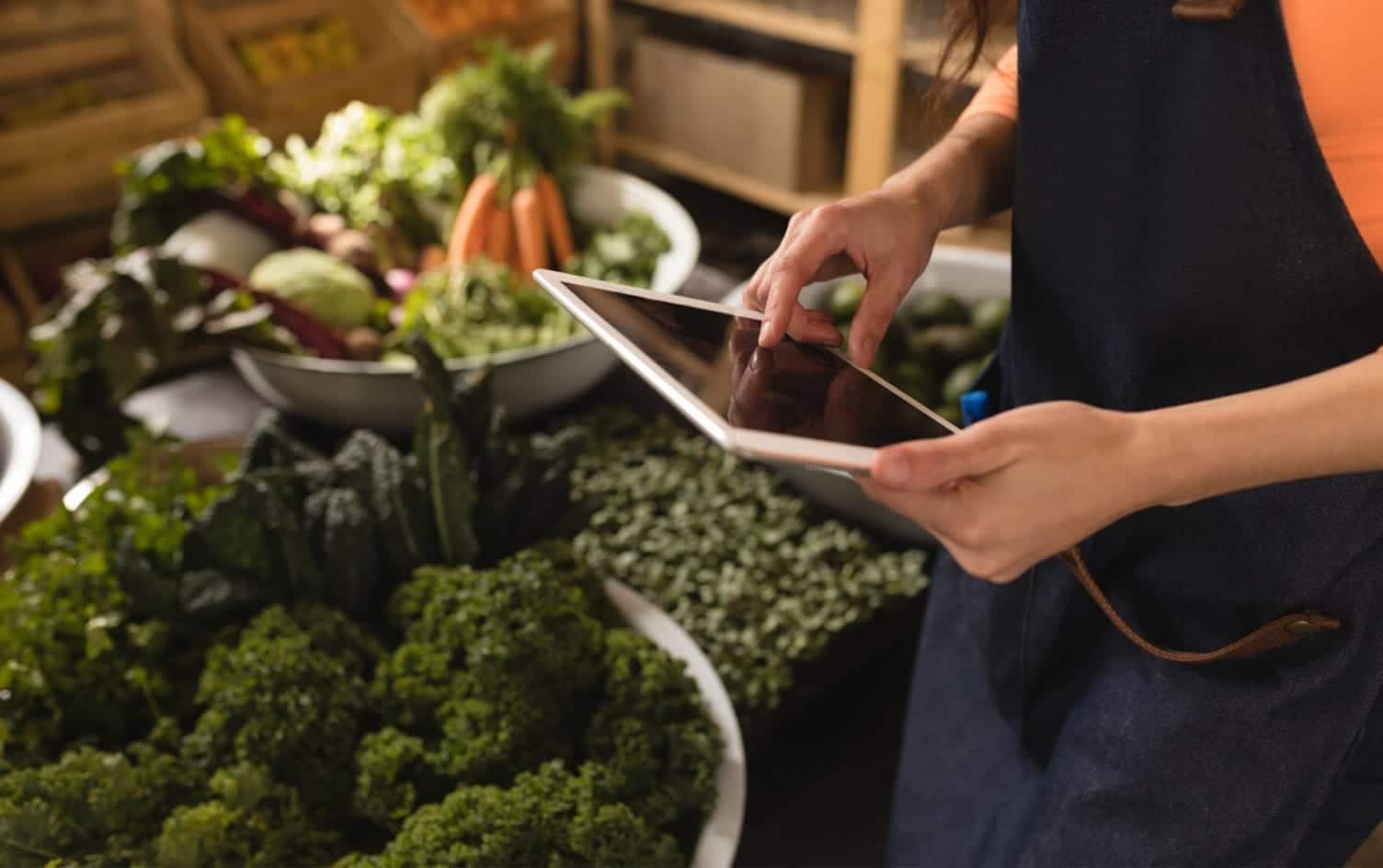
When it comes to healthy eating, one debate has raged for years: Should you buy organic? There are several reasons you might consider going that route. Maybe you want to avoid residual pesticides found on conventional produce because you’re worried they could be unsafe. Maybe you think eating organic equals eating healthier. After all, there’s a health halo around organic foods, which may bring to mind traditional family farms and are often tied to labels like ‘clean,’ ‘green’ and ‘natural.’
But the label (and price tag) doesn’t necessarily mean the food is healthier, per se. What it actually means: Fruits, vegetables, nuts and grains are non-genetically modified (aka non-GMO), grown without synthetic pesticides or fertilizers, and not irradiated (or treated with radiation to kill bacteria). Organic cows and chickens are not given any growth hormones, antibiotics or other drugs; they eat organic food and can access the outdoors.
“Buying organic sends a message that you want food grown without chemicals and in harmony with nature,” says Jeff Moyer, an organic farmer and CEO of the Rodale Institute. But do these regulations make laying down extra bucks for organic products worth it, or are the differences in quality no big deal when it comes to your health, safety and other key concerns?
This question has led to a lively debate between food scientists, registered dietitians and farmers alike. Some research shows organic foods may indeed be more nutritious, but studies are mixed and the jury’s still out on whether or not they’re superior overall compared to conventionally grown foods, per a 2019 review in Trends in Food Science & Technology.
As such, experts remain divided. Here, they opine on organic foods.
Toby Amidor, RD, Food Safety Consultant
Darlene Bellers, RD, Health Sciences Lecturer
Amanda A. Kostro Miller, RD
Jeff Moyer, organic farmer and CEO of the Rodale Institute
SHOULD YOU BUY ORGANIC?

While it’s not always possible for everyone due to finances, access or other reasons, I recommend buying organic if and when you can to best protect your health and the planet. Sure, the levels of pesticide residue in non-organic foods is within legal limits, but even a small amount of these chemicals may impact your health, and a lifetime of eating small amounts of pesticide residue on conventional foods could add up.

With non-organic foods, the evidence isn’t clear on what amount of residual pesticides is ‘unsafe.’ Logically speaking, an ideal diet would contain no pesticides or chemicals, which is why organic foods exist. But whether or not you should buy organic depends on your budget and personal values.

If you can’t afford organic, you shouldn’t feel guilty or worried about eating conventional produce. Concerns about pesticides are valid, but avoiding fruits and vegetables altogether can be more harmful than eating non-organic fruits and vegetables.
ARE ORGANIC FOODS SAFER OR HEALTHIER?

How we grow our food is directly related to our health. Organic foods are safer because they’re grown without the use of synthetic pesticides, herbicides and other chemicals. When many agricultural chemicals are sprayed on conventionally-grown crops, they remain in and on food and can add to human illness. For example, glyphosate, the main ingredient in the herbicide Roundup, is labeled a probable carcinogen by the World Health Organization (WHO).

Both organic and conventional foods have roughly the same overall nutrients, and organic foods are not ‘safer’ or ‘healthier’ than non-organic foods. The latest Pesticide Data Program (PDP) results from the USDA showed more than 99% of the samples of non-organic produce tested had pesticide residues well below levels established by the Environmental Protection Agency (EPA) as safe to eat. Nearly half of the produce tested had no detectable pesticide residue at all.
WHAT ARE THE BENEFITS OF BUYING ORGANIC?

Buying organic protects your health by removing harmful chemicals from your food. It’s also an eco-conscious choice. Organic farming practices support biodiversity, reduce fossil fuel use and improve water and air quality. Many conventional farmers do implement sustainability practices. However, the use of pesticides, herbicides and salt-based fertilizers are inherently harmful to the Earth, not only in their implications for water, soil and air, but also in their impact on people.

I do not believe buying organic versus conventional has greater benefits. If you care about sustainability, organic food is more environmentally friendly per unit of land, but when you consider how much farms produce, it’s no better than conventional farming (because organic farms produce less).
WHAT ARE THE DOWNSIDES OF BUYING ORGANIC?

Not everyone can access or afford organic foods, and ‘organic’ is often falsely equated with ‘healthy.’ For example, organic cookies are still cookies and provide lots of empty calories (just like non-organic cookies).
ARE THERE CERTAIN FOODS YOU SHOULD ALWAYS BUY ORGANIC?

The Environmental Working Group (EWG) provides a Dirty Dozen list, which shows the 12 fruits and vegetables that use the most pesticides and herbicides to grow, such as strawberries, spinach and kale. These are still within ‘safe’ levels regulated by the government, but I’d advise always buying organic if you can to lower your exposure.

The health benefits of eating fruits and vegetables of any type far outweigh any possible risk of consuming a little pesticide residue. As such, I believe you should choose to eat foods that fit your lifestyle, whether they’re organic, conventional, ugly or local.
THE BOTTOM LINE
Ultimately, experts agree on one thing: Whether or not you buy organic is a personal choice based on your budget, health concerns and values, but you should strive to eat fruits and vegetables.
If you want to buy more organic foods on a budget, start with the Dirty Dozen list and consider visiting your local farmers market. Since transportation time is lower, your produce will likely last longer and may cost less, too, says Bellers.
However, it’s important to remember “your main priority should be including a wide variety of wholesome foods in your diet, organic or not,” says Amidor.
“If you’re worried about pesticides in your produce, you can use the Pesticide Residue Calculator from the Alliance for Food and Farming (AFF) to calculate just how much fresh produce you’d have to eat to ingest a harmful level of pesticide residue (according to USDA safety standards),” says Amidor.




